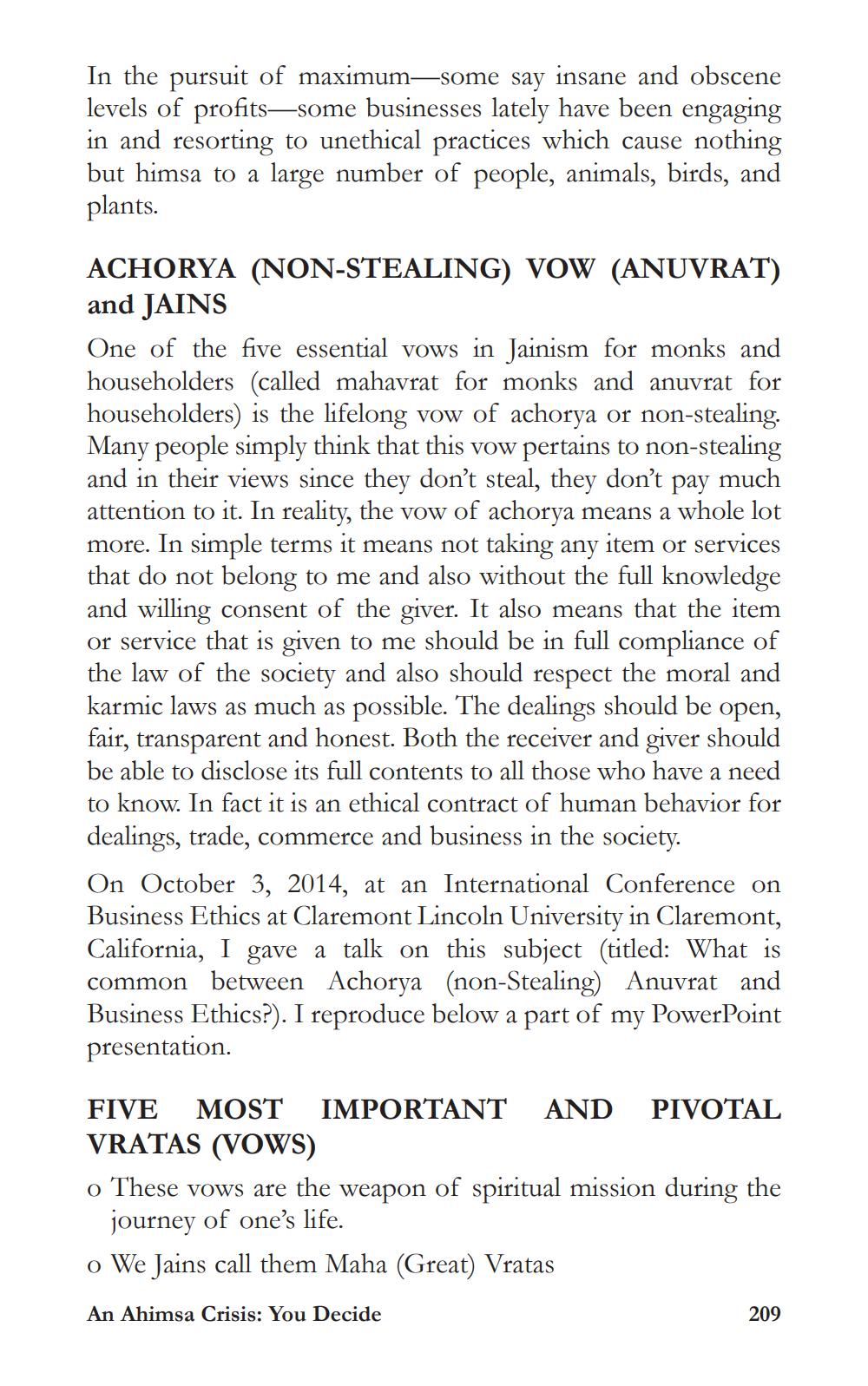________________
In the pursuit of maximum—some say insane and obscene levels of profits—some businesses lately have been engaging in and resorting to unethical practices which cause nothing but himsa to a large number of people, animals, birds, and plants.
ACHORYA (NON-STEALING) VOW (ANUVRAT) and JAINS One of the five essential vows in Jainism for monks and householders (called mahavrat for monks and anuvrat for householders) is the lifelong vow of achorya or non-stealing. Many people simply think that this vow pertains to non-stealing and in their views since they don't steal, they don't pay much attention to it. In reality, the vow of achorya means a whole lot more. In simple terms it means not taking any item or services that do not belong to me and also without the full knowledge and willing consent of the giver. It also means that the item or service that is given to me should be in full compliance of the law of the society and also should respect the moral and karmic laws as much as possible. The dealings should be open, fair, transparent and honest. Both the receiver and giver should be able to disclose its full contents to all those who have a need to know. In fact it is an ethical contract of human behavior for dealings, trade, commerce and business in the society. On October 3, 2014, at an International Conference on Business Ethics at Claremont Lincoln University in Claremont, California, I gave a talk on this subject (titled: What is common between Achorya (non-Stealing) Anuvrat and Business Ethics?). I reproduce below a part of my PowerPoint presentation.
FIVE MOST IMPORTANT AND PIVOTAL VRATAS (VOWS) o These vows are the weapon of spiritual mission during the
journey of one's life. o We Jains call them Maha (Great) Vratas
An Ahimsa Crisis: You Decide
209




